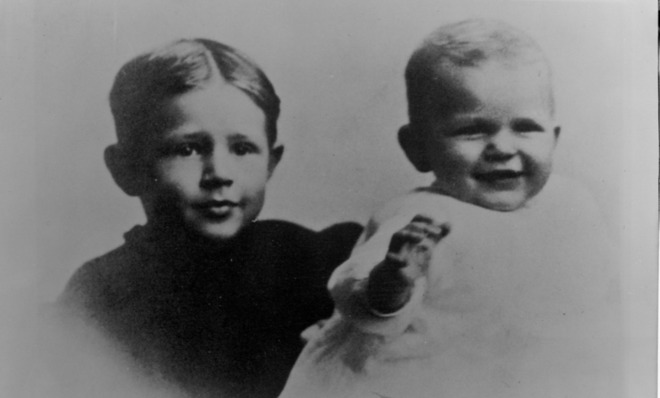Today in history: February 6
In 1911, Ronald Reagan was born

A free daily email with the biggest news stories of the day – and the best features from TheWeek.com
You are now subscribed
Your newsletter sign-up was successful

Feb. 6, 1911: Ronald Reagan was born. He was the 40th president, serving between 1981 to 1989. Known as the "Great Communicator," Reagan did not see himself as one — but said, "I communicated great things."
President Reagan was known for his optimism and enduring faith in America's future; his vision was that of a "shining city on a hill." Many credit him for helping to win the Cold War against the Soviet Union, a goal he predicted in a famous 1982 speech in which he predicted that "the march of freedom and democracy" would leave Marxism-Leninism on the "ash heap of history."
At home, Reagan presided over a robust economic rebound from the recession of 1980 to 1982. Some 5.3 million and 10.7 million jobs were created, respectively, during his two terms in office. He also preserved Social Security by taxing benefits and raising the retirement age. He increased payroll taxes on businesses and their employees and added new federal employees to the system.
The Week
Escape your echo chamber. Get the facts behind the news, plus analysis from multiple perspectives.

Sign up for The Week's Free Newsletters
From our morning news briefing to a weekly Good News Newsletter, get the best of The Week delivered directly to your inbox.
From our morning news briefing to a weekly Good News Newsletter, get the best of The Week delivered directly to your inbox.
Reagan signed a gas tax hike; his 1986 Tax Reform Act closed loopholes and raised taxes on businesses by today's equivalent of $750 billion. Despite this increased revenue, the national debt increased (in absolute terms) some 256 percent. As a percentage of the economy, the debt grew from 26 percent to 42 percent during the Reagan era. The gross debt tripled from $908 billion in 1980 to $3.2 trillion in 1990. He also expanded the size of the federal government.
Reagan, who came within seconds of dying after a 1981 assassination attempt, supported measures to reduce gun violence. In 1986, he signed the Firearm Owners Protection Act, which was hailed by gun rights activists for its numerous protections for gun owners. But it also banned ownership of any fully automatic rifles that weren't already registered on the day the law was signed. He also supported an assault weapons ban and the Brady Bill on background checks for prospective gun buyers.
During President Reagan's second term, the White House became snared in what became a constitutional crisis: the Iran-Contra scandal, in which Reagan admitted that money from Iranian arms sales had been used to buy weapons for U.S. backed rebels in Nicaragua. Many Americans were angry that Reagan appeared to be doing business with Iranian officials — while publicly labeling them terrorists. There was talk of impeachment.
Reagan was also the first cap-and-trade president, using the concept to attack leaded gasoline and pollutants that cause acid rain.
A free daily email with the biggest news stories of the day – and the best features from TheWeek.com
A Vanity Fair poll in 2010 said Reagan was the choice of Republicans for a fifth face on Mt. Rushmore (Democrats opted for JFK).
Quotes of the Day
"America is too great for small dreams." — Ronald Reagan
"I know in my heart that man is good, that what is right will always eventually triumph, and there is purpose and worth to each and every life." — Ronald Reagan
More from West Wing Reports...
-
 Democrats push for ICE accountability
Democrats push for ICE accountabilityFeature U.S. citizens shot and violently detained by immigration agents testify at Capitol Hill hearing
-
 The price of sporting glory
The price of sporting gloryFeature The Milan-Cortina Winter Olympics kicked off this week. Will Italy regret playing host?
-
 Fulton County: A dress rehearsal for election theft?
Fulton County: A dress rehearsal for election theft?Feature Director of National Intelligence Tulsi Gabbard is Trump's de facto ‘voter fraud’ czar